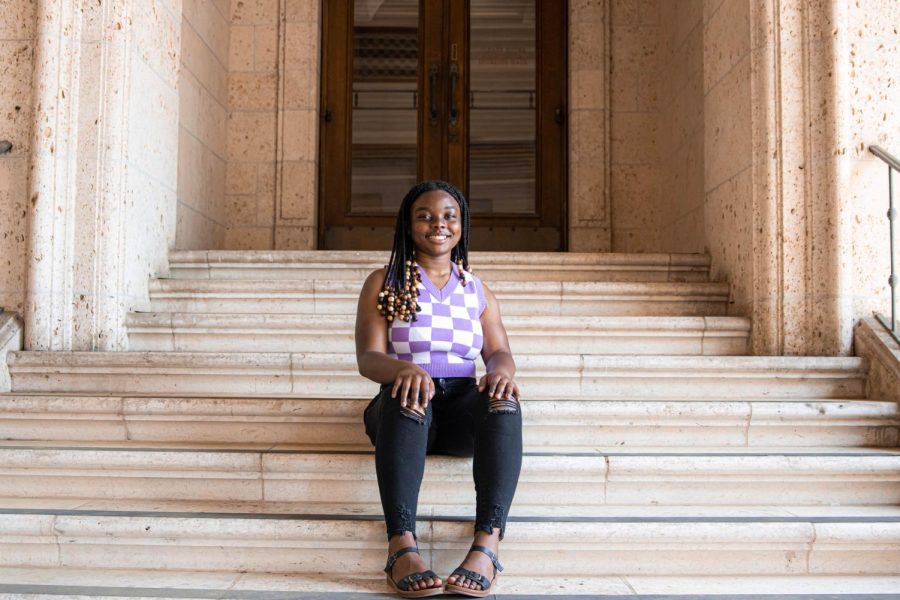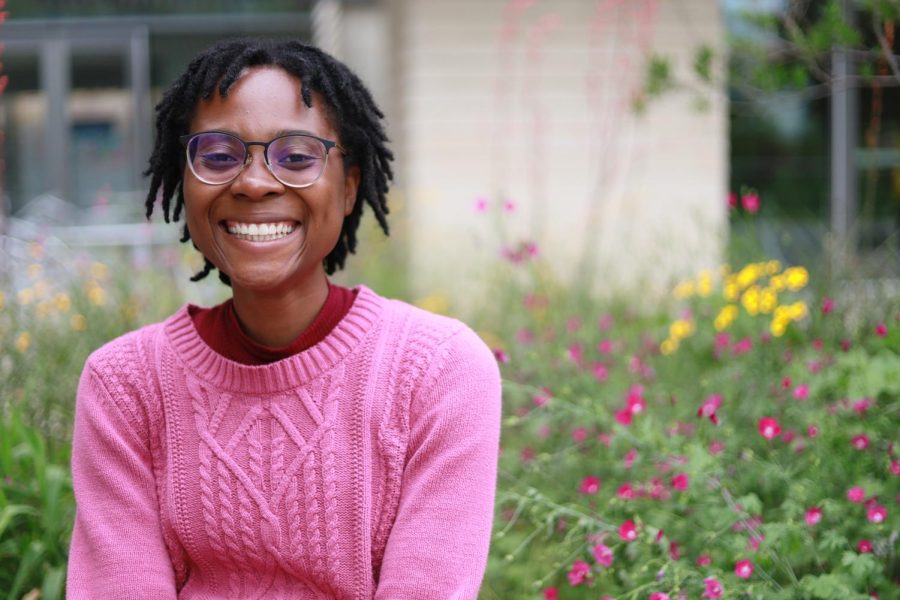UT students of color share experiences studying medicine
April 27, 2022
Christine Okoro’s eyes darted across the pages of Dr. Ben Carson’s autobiography as she sat in her sixth grade classroom; each word she read affirmed that she too could be a successful doctor.
Okoro now inches closer to the goal she set as a middle schooler. She is completing her second year as a neuroscience major at UT. However, Okoro’s passions have grown beyond just medicine. Today, she fosters a passion for health equity because of the injustices she has witnessed within her own community as a Black woman.
“As humans we have a right to gain access to healthcare resources, regardless of socioeconomic background, racial background or anything like that,” Okoro said. “Health care isn’t just for the rich (and) privileged. It’s for everybody.”
To encourage students like Okoro who are passionate about health equity and desire careers in the healthcare field, the Division of Diversity and Community Engagement’s Community Integrated Health Initiative and Dell Medical School’s Health Professions Pathway Program created a partnership to send 15 undergraduate students of color studying medicine and health to Atlanta, Georgia. This is the partnership’s first annual Health Equity Exposure Experience that aims to help Black and Hispanic students work in the medical field.
The trip started April 27 and ends May 1. Students, along with Dell Med faculty, will visit and tour the headquarters for the Center of Disease Control (CDC), Georgia Tech Sports Medicine Department, the National Center for Civil and Human Rights and participate in numerous activities and opportunities to learn and boost their careers.
“Health is multifaceted and nuanced to the point that the strides you want to make in the healthcare field cannot be made by people that are similar to one another,” said senior sociology major Esther Egbulonu. “The problems are diverse, and the problems are hard. You need to have people who are diverse.”
Despite her upcoming trip, Egbulonu said she doesn’t feel like she belongs in spaces like the CDC. In order to mend the complex issues within the health industry, the field as a whole needs to be further diversified, Egbulonu said.
According to the Association of American Medical Colleges, as of 2019-2020, the racial demographics of physicians in the United States broken down into percentages consists of a 50.8% Caucasian population, 21.8% Asian population, 7.5% Hispanic/Lantinx population, 5.5% African American population, 6% Native American population and .2% Pacific Islander and Hawaiian population.
“There’s a stigma that because you’re this, you can’t do this. (The Health Equity Exposure Experience) breaks down that barrier because as humans, we tend to limit ourselves from where we come from, and based off of family history,” said Ginata Lopez, a health and society junior.
Lopez said that oftentimes, students of color in STEM can feel dismissed and underestimated. However, the Health Equity Exposure Experience allows minorities to step into spaces they would never expect to go into and acknowledge that they belong in those spaces, Lopez said.
“If you don’t ever get to experience things like this and understand that you deserve this, know (that) you were given this opportunity for a reason.” Lopez said. “It’s really important for people of color and minority students to be able to push themselves because (we’re) definitely capable of more than what we think we are.”
Biochemistry senior Salvador Carrillo is one of the students included in the trip. He grew up in a small town with only one health clinic — where many of the physicians and staff workers could not speak Spanish. Carrillo said he had to translate complex medical terminology as a child while he was sick.
The disparities in Carrillo’s community made him want to study medicine, so he could be the change he wanted to see.
“Coming to college, as I’ve learned more that it wasn’t just me experiencing (inequality in medicine), there’s research behind it,” Carrillo said. “It morphed into this idea that I can be a doctor, but I can take it a step further and be like, ‘Okay, what can I do for people back home, for my community (and) for people who look like me to feel more welcome to these spaces?’ There’s a lot of stigma about going to the doctor, and I want to help alleviate that problem, that disconnect.”
Marco Quiroz, a health and society junior and trip attendee, said he plans to use the information he learns from speakers at the trip about the intersection of politics and the healthcare field as well as the stories he has heard from peers at UT to work harder towards moving the healthcare field forward with diversity, equity and inclusion.
“It’s just very disheartening to hear that they’re going through these health complications, and it feels like a lot of people don’t care. It feels like a lot of people don’t listen — they just move on.” Quiroz said. “That’s why I’m so passionate and motivated, and that has inspired me to go into the field, not through medicine, but through public health and healthcare reform and healthcare policy.”
Quiroz said that while this trip to Atlanta will directly benefit the students going, those students will have an effect on the medical professionals they will be talking to. He said their stories and perspectives will be valuable and powerful for the professionals to take in and reflect on.
“(This is) a great opportunity for us to further our journey in being health leaders,” Quiroz said. “It’s also for us to declare that we are people of color (and) we are people who come from marginalized communities, but we are talented people who have the capabilities to bring real change, who have different ideas. (We have the chance) to ask those serious questions (and) challenge those people who we will be meeting.”
Although he and his peers’ experiences tend to be brushed to the side, Quiroz said they hold impact.
“It doesn’t matter where you come from, how you look or your socioeconomic status,” Quiroz said. “As long as you’re passionate about this, as long as you’re able and have the willingness to work for what you want to accomplish, there’s no barrier that is going to say no.”




